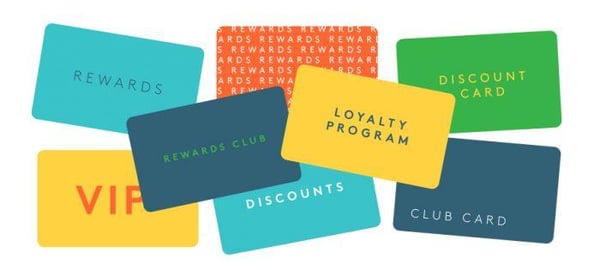There is a indisputable tenet which guides successful commercial ventures, preached in every business school worth its weight. Make a customer, not just a sale. One can argue this maxim is based solely on common sense. But activities that are dependent on a bottom line must be justified by empirical evidence. In this case, the customer versus sale prerogative is backed up by two data points.
First, profit margins are not a simple matter of subtracting the wholesale cost from the retail price of a given item. Each sale also carries the financial burdens of customer acquisition. These cover everything the seller must do to convince a potential buyer to want the product and more importantly to purchase it from a particular establishment. These costs include marketing to inform the customer of the product’s existence and its availability on-line or at a physical location. For many new products, it also includes outlays to educate the customer about the product’s value or its ease of use.
For every new potential customer you incur those expenses again and again. But these costs are dramatically reduced when dealing with a repeat buyer or a new customer referred by an existing one. In Malcolm Gladwell’s book “The Tipping Point,” he encourages businesses to nurture a category of customer he refers to as “evangelists,” those people who love to talk about their commercial experiences. Think of them as pro bono marketing reps. At no cost, they are talking you up among family, friends and associates with the advantage of already being viewed as a trustworthy source of information.
 The second data point is the proliferation of loyalty programs. They are the best example that relationships travel on two-way streets. Why would a hotel chain or airline give you a free room or flight which it could otherwise offer paying customers to increase its bottom line? Because the numbers show you are more likely to patronize that company even when a competitor offers a lower price or is more convenient.
The second data point is the proliferation of loyalty programs. They are the best example that relationships travel on two-way streets. Why would a hotel chain or airline give you a free room or flight which it could otherwise offer paying customers to increase its bottom line? Because the numbers show you are more likely to patronize that company even when a competitor offers a lower price or is more convenient.
More importantly, the relationship is not based solely on “what have you done for me lately.” Everyone screws up. However, a loyal customer is more likely to overlook that occasional bump in the road when stacked up against months and years of preferential treatment or appreciation.
Though many do not want to admit it, politics is a business. What differentiates the two is not organizational structure or procedures, it is nomenclature. The CEO is the CIC, commander-in-chief. Corporate divisions are cabinet departments. The currency is votes, not dollars. Bankruptcies are failed legislation, lost elections, resignations and impeachments.
Over the past four days, Donald Trump, the self-proclaimed “duke of debt” reminded us he is also the “baron of bankruptcies.” And the enterprise known as the Trump administration is about to learn what every successful for-profit entity already knows. Benjamin Franklin’s adage, “A penny saved is a penny earned,” may apply to the customer, but not the vendor. To the contrary, a penny spent on nurturing and sustaining a customer relationship is a future stream of many pennies.
The term quid pro quo has been tossed around a lot since news of the intelligence community whistleblower’s complaint surfaced in the Washington Post. Yet, the fact is every transaction is a quid pro quo. You exchange money for a good or service. You go to a play or movie and you are entertained. Donald Trump is the quintessential transactional chief executive. Everything he does is a quid pro quo. He deprives military families of better schools for their children so he can tell his most rabid supporters he kept a promise thus alienating a voter bloc which was with him in 2016. He gets Rudy Giulliani to manufacture alibis and false accusations to protect him in exchange for an opportunity to be relevant again. Yet, Giulliani’s manic behavior makes Trumpist congresspersons’ task to defend the indefensible that much harder.
There is another problem with these efforts at immediate gratification. Immediate also means they are seldom based on a solid foundation, especially one of loyalty. That is why when Trump needs them most, Bill Barr is hiding out in Italy. Kurt Volcker resigns and tells the House Intelligence Committee he is ready to cooperate. A whistleblower remembers when the commander-in-chief stood in front of the CIA’s Wall of Honor and used the occasion to honor himself or chose the word of Vladimir Putin over the men and women who protect America from the next 9/11.
Do not be surprised when a line of “creditors” forms outside the House Intelligence Committee room next week when the Trump organization once again finds itself in bankruptcy court.
For what it’s worth.
Dr. ESP

Cool and right on point. Thanks.